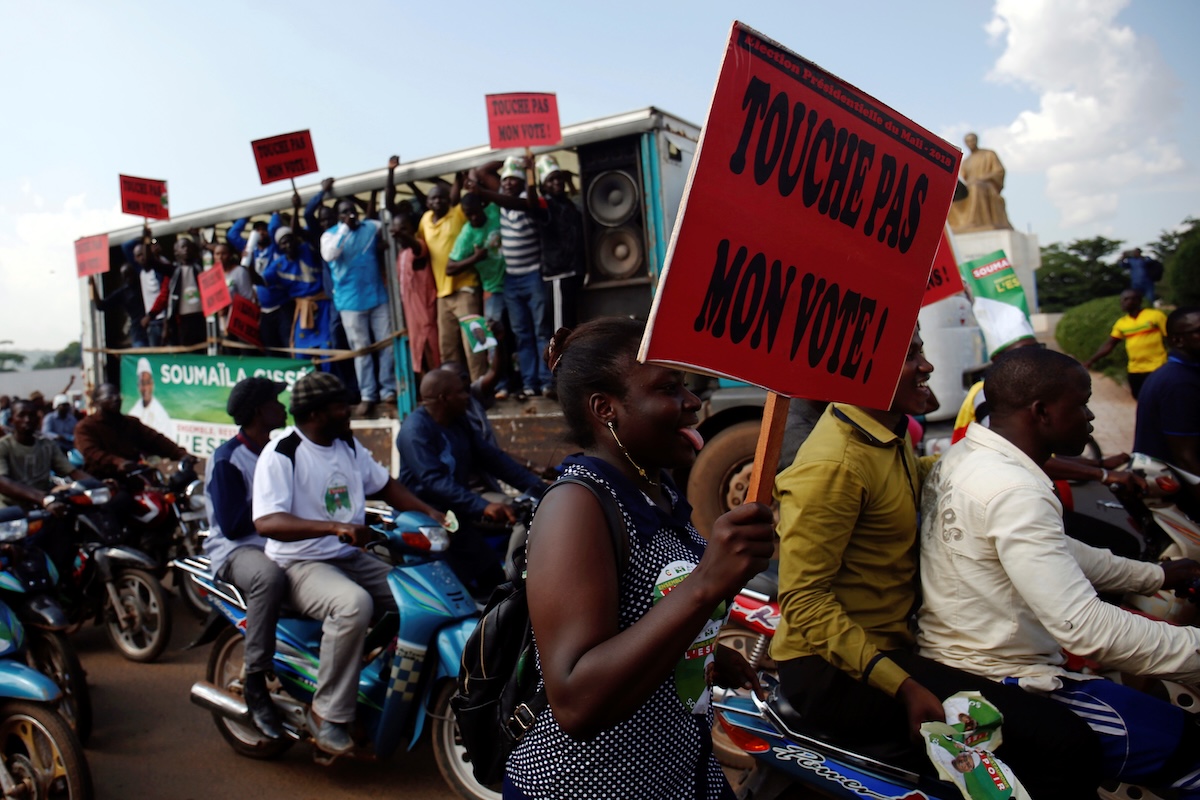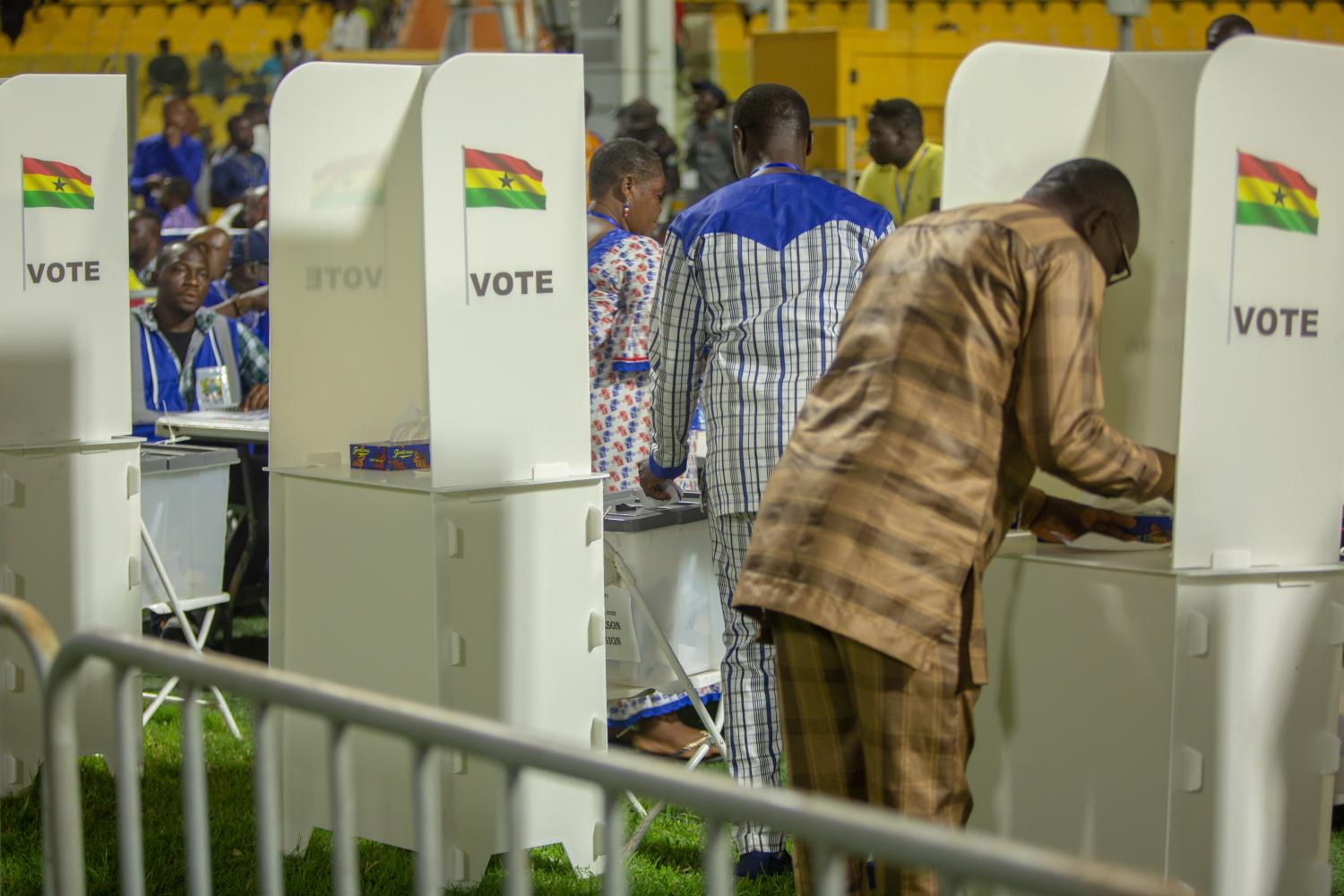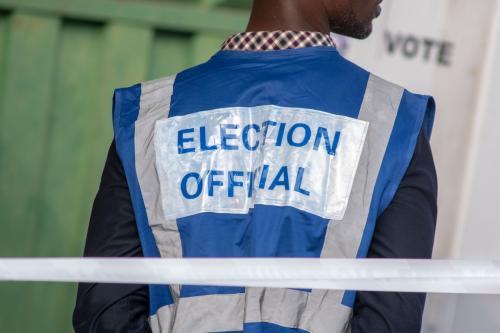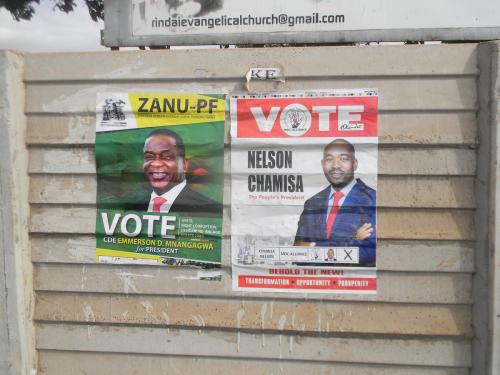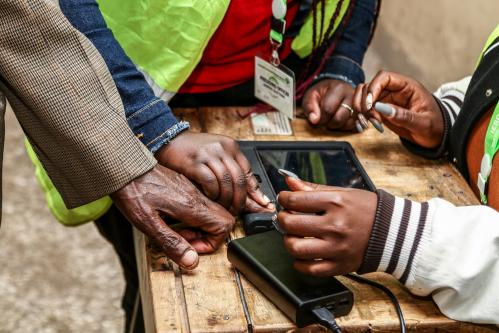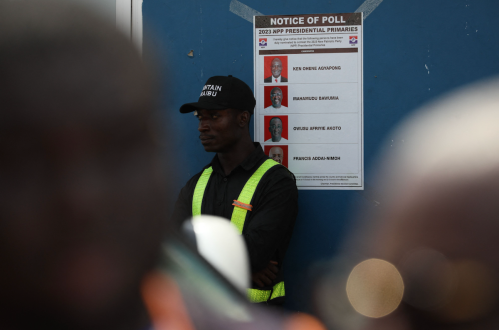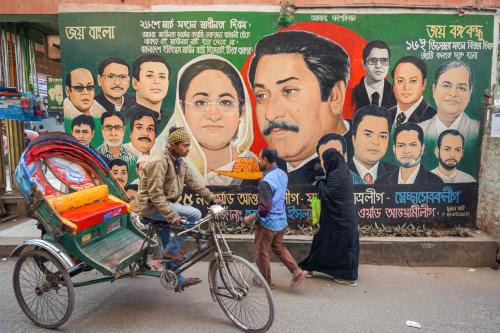This case study is part of a project on the state of democracy in Africa. See our other works from this project.
In the past decade, the world has witnessed Mali’s democratic breakdown. Mali and some of the other Sahelian countries, such as Burkina Faso, Niger, and Guinea, diverge from most contemporary cases of democratic retrenchment. We observe dramatic cases of “breakdowns” through the return of the military coup, which contrasts depictions of less visible forms of “backsliding” in other contexts (Bermeo, 2016; Waldner and Lust, 2017).1 Mali has gone from holding regular multi-party elections that generated two turnovers of presidential power to three coups in a decade and a current military-run government. We draw on secondary literature and original focus group data from 66 “grinw”—informal, tea-drinking discussion groups conducted in Bamako and Mopti in the fall of 20152 to make our argument.3 This essay outlines major factors that contributed to Mali’s contemporary political situation.
We argue that the Malian case highlights three important lessons for scholars of democratization. First, weak and non-responsive institutions made the regime vulnerable to instability. After nearly 20 years of multi-party elections, the state of Malian democracy—including the failure of elections to generate responsive government, the social and economic distance between citizens and the ruling class, pervasive corruption, and the divergence of governmental and popular priorities—frustrated citizens. Our analysis aligns with Wing (2024), who argues that poor governance was a root cause of the contemporary crisis. In this case, regime underperformance set the stage for breakdown while insecurity served as the trigger.
Second, formal institutions’ inability to resolve conflict made citizens look for solutions in extra-institutional channels to resolve disputes rather than through political parties, the courts, or the National Assembly. Malians tolerated the intervention of a relatively trusted institution, the military, to help address the governance crisis—as they had done during the original transition to multi-party elections.
Finally, the Malian case demonstrates the ways that conflict, insecurity, and threats to sovereignty can trigger democratic retrenchment. Ongoing insecurity can trigger democratic backsliding, as evidenced by tension between citizens and political elites in the lead up and aftermath of the 2012 rebellion. In the wake of this, citizens witnessed the regime’s inability to mediate the conflict and the subsequent increases in insecurity throughout the country. This crisis of sovereignty served as a tipping point that precipitated the breakdown.
Citizens continue to prefer democracy and multi-party elections to any other form of government (Coulibaly et al, 2020), but also really care about solutions to pressing crises such as security, corruption, and accountability, and are eager to find actors that will address these issues. Consistent with Kerr’s (2024) argument, it suggests that citizens pay attention to the quality of democratic institutions. They appear willing to tolerate democratic breakdown in the short term with hopes of ultimately improving democratic institutions and the functioning of the multi-party system (Soumano 2023).
-
Acknowledgements and disclosures
The Brookings Institution is a nonprofit organization devoted to independent research and policy solutions. Its mission is to conduct high-quality, independent research and based on that research, to provide innovative, practical recommendations for policymakers and the public. The conclusions and recommendations of any Brookings publication are solely those of its author(s), and do not reflect the views or policies of the Institution, its management, its other scholars, or the funders acknowledged below.
This publication is supported by a grant from the Open Society Foundations.
Brookings recognizes that the value it provides is in its absolute commitment to quality, independence, and impact. Activities supported by its donors reflect this commitment.
-
Footnotes
- Waldner and Lust define backsliding by its subtlety: “Backsliding makes elections less competitive without entirely undermining the electoral mechanism; it restricts participation without explicitly abolishing norms of universal franchise seen as constitutive of contemporary democracy; and it loosens constraints of accountability by eroding norms of answerability and punishment, where answerability refers to the obligation of officials to publicize and justify their actions, and punishment refers to the capacity of either citizens or alternative governing agencies to impose negative consequences for undesirable actions or violations of sanctioned procedures (2017: 5.3)”
- This original focus group data collection completed by author Jaimie Bleck was supported by USAID-DRG Grant (DFG-11-APS-ND), the American Council of Learned Scholars, and the Helen Kellogg Institute for International Studies at the University of Notre Dame.
- Note: “Grin” is singular, “grinw” is plural.
The Brookings Institution is committed to quality, independence, and impact.
We are supported by a diverse array of funders. In line with our values and policies, each Brookings publication represents the sole views of its author(s).
